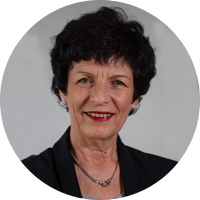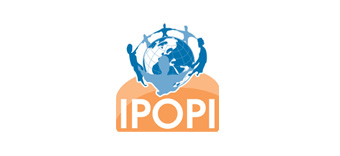
June 2019
From the President’s desk…
Dear Friends,
“Putting primary immunodeficiency patients at the centre of their care”, the 2019 edition of World Primary Immunodeficiencies Week intended to place patient-centered care at the heart of the campaign. And what a successful outcome! First of all, let’s talk about how pleased we are to have had so many of our NMOs committed in this year’s issue. Thanks to the great support of its corporate partners, IPOPI was able to support 31 NMOs in their awareness and advocacy efforts. PIDs stood high on the agenda in all continents, with so many countries involved in an array of campaigns and awareness raising programmes including family meetings, exhibitions, stakeholders’ roundtables, media campaign, races and challenges, trainings… The whole PID global community, patients, doctors, nurses, pharmaceutical companies successfully joined forces to make the invisible visible, to put faces, facts and evidence on more than 360 conditions that require early and accurate diagnosis and access to lifelong personnalised treatment. As simple as that! I am very proud to be part of such a strong and special community that is able to mobilise itself globally in such a way.
But if WPIW brings fantastic momentum, IPOPI, our NMOs and all the stakeholders work hard all year-long. The patient-centric approach looks like a given, but actually much remains to be done … or simply preserved. For cultural, economic or political reasons, patient reality and needs are still often ignored or denied, especially for those living with chronic diseases, leading in many cases to a payer-centred or reimburser-centred approach instead … Such situations strongly highlight the importance of stakeholders’ cooperation and the need for a strong and active patient group in every country, as patients through their unique experience, must speak up about their life, their needs, priorities and projects. Patient-centred care will remain undoubtedly a key objective for IPOPI in the years to come!
On that note, we are very pleased that IPOPI has been accepted again as a member of the European Medicines Agency Patients and Consumers Working Party (PCWP) for the term 2019 to 2022. We are thankful to Mrs Jose Drabwell and Leire Solis, respectively IPOPI’s Past President and Health Policy and Advocacy Senior Manager for their hard work on the committee until now.
Still in Europe, and despite the EU elections, IPOPI has continued its work on the priorities included in our manifesto including on newborn screening. As such we have been liaising with the European Commission and some key member states, with the ultimate objective of ensuring equal access to newborn screening for all babies born in the EU with a rare disease through the telling case of PIDs and SCID. This is especially important as the ball is starting to roll in Europe with Sweden implementing SCID newborn screening as of next July, after a similar announcement by Germany. Congratulations to our Swedish and German colleagues, well done indeed!
Patient advocacy is paramount here, this is the reason why IPOPI is implementing programmes to raise awareness among decision makers so that decisions include the patients’ perspective, may they be infants, teenagers or adults including aging citizens.
The inclusion of the patient voice in research is also a growing trend which is turning more and more into reality. To illustrate this, IPOPI, attended the RECOMB annual meeting, and we were very happy to share and learn about the progress made within the RECOMB consortium where IPOPI plays an active role as Work Package Leader.
Now, let’s fly to Africa, Senegal more precisely, where the ASID Biennial congress took place under the leadership of Professor Tandakha Dieye. “Think immunodeficiencies in Africa and save lives” was the tagline chosen for this event in a continent where more than 90% of people living with a PID remain undiagnosed. IPOPI organised its African Regional Patient meeting in coordination with the ASID congress and was delighted to welcome patient representatives from 7 countries. PID awareness in Africa is growing thanks to the excellent A-Project which is aimed at training physicians, nurses and biologists on PIDs throughout the continent. I take the opportunity to warmly congratulate Dr Nahla Erwa from Sudan, who was elected president of ASID and send her and our friends in this country all our thoughts.
Last but not least, I would like to thank our IPIC2019 Organising and Scientific Committee for their support in the preparation of our next congress due to take place in Madrid, Spain on 6-8 November 2019. The congress programme is now final and as you will see includes so many exciting sessions and presentations by key opinion leaders in the PID field. We are all set to have another great congress! On this note you should know that many abstratcs for poster presentations have already been submitted. I encourage all our colleagues who would like to let the PID global community know about their latest research efforts on PID clinical care and diagnosis to submit their abstract. There is still time to do so as the deadline for abstract submission has been extended, so seize this opportunity.
Please have a read through this e-News to learn more about the fantastic and busy Spring period we all had! As for the months to come I wish you all a happy summer or… winter, depending on the part of the world you live in!
Martine Pergent
